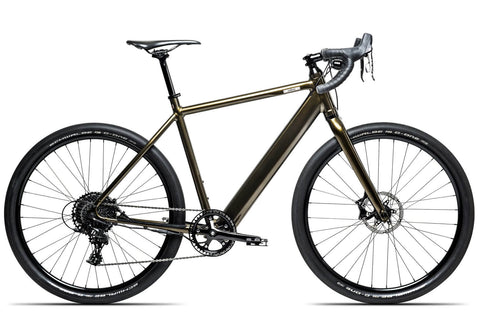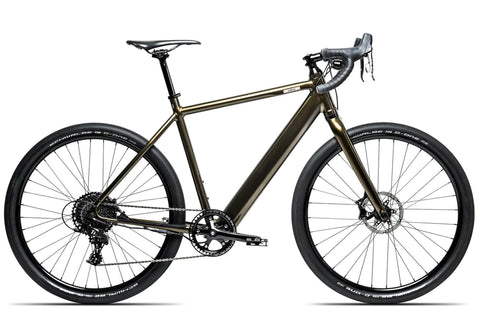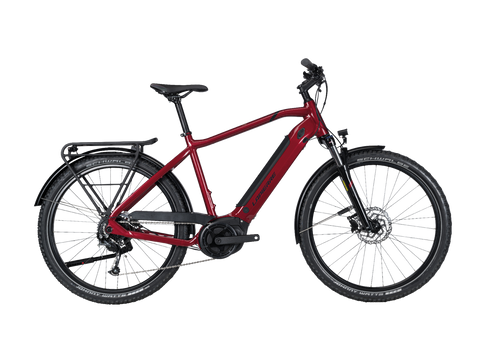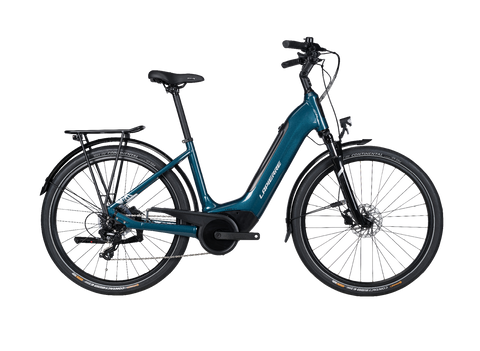
Why are electric bikes so expensive?
It’s easy to be in slight shock when you first see an electric bike and the price.
"Over £1,000 for a bike? But it’s just a bicycle! I could buy a car for that..."
Before you get too carried away however, let us explain a little bit about why living with an electric bike is cheaper than you may think, and a bit of background as to why the initial price is high.
There are two core components that make them more expensive (and heavier) than an unassisted bike.
- The Batteries
- The Motor
Batteries
Batteries can cost £400+ on their own and will make up the main chunk in cost of your bike. It is the same with electric cars. The scale of battery production is not (quite) yet there to start seeing large reductions in prices.
Instead of prices falling, we are seeing cell density and technology improve so that range and battery lifespan increases.

Motor
Motors are complex, highly engineered parts. As you pedal, the motor “boosts” your power to the wheel giving you the extra umph. These come in all shapes and sizes which we won’t cover here - but the complexity is what makes them so expensive.
Compared to after-market kits which may be more appealing, the ride experience is far better with smoother gearing, quieter motors and a much smoother power delivery. Native motors are also far more powerful, making any hills simply disappear.

Don’t go Cheap
At this point it may be tempting to go for one of the newer entrants which are at the lower end of the market, often well under £2,000. However most of this money is tied up in the battery and motor meaning the rest of the bike components will also be cheaply made and of poor quality.
Going for a cheaper model will usually mean you’re getting a low quality battery with a motor which is either less efficient and small (worse range) or less powerful (weaker on hills) or both (a bad riding experience!).
In the past our customers have often come to us with batteries from cheaper brands that have stopped charging or run down far faster than they should. They’re left with a hefty bill to replace the battery, or an even bigger bill to replace the bike entirely.
Spending a bit more money is cost effective in the long run, as batteries will have longer guarantees and last much longer.
There are also plenty of low cost finance packages available to help you spend that bit extra to get a much better experience.
The QWIC Urban R1 is a Dutch-made electric bike which will take you thousands of miles with minimal maintenance
How long does an electric bike battery last?
Talking of batteries and how much of the cost they make up - a common question we are asked is how long they last.
Each battery is different and will depend on many factors such as how it is kept, the rate of discharge, storage temperatures and general care for it.
Assuming reasonable care and regular maintenance is carried out, a electric bike battery should last 4 or 5 years.
The benefit of going with established branded batteries such as Bosch is that they come with inbuilt Battery Management Systems (BMS). Battery Management Systems protect against over charging, excessive discharge and overheating.
Bosch also guarantees batteries for 2 years, with an expected upper life limit of around 8 years. Importantly, the battery packs will still work, but the amount of charge capacity will begin to degrade.
Full information and care guidance for eBike batteries with more technical information can be found in this Bosch brochure, page 22.
Range
The range of your electric bike will depend on many factors, the most obvious being the motor and battery size. eBike batteries range from 300Wh to over 800Wh, depending on model and brand.
How long your bike battery will last in terms of range can only ever be given as a guide.
To get an idea, have a play about with Bosch’s “Range Calculator”.
Are electric bikes really expensive?
In terms of day to day usage, it’s important to look at an electric bike not just as a bicycle, but as a way to reduce how much you use the car.
Increasingly in Europe, electric bikes are replacing cars as a more cost effective and faster urban means of transport.
Electric bike riders go further (5 miles vs 3) than they would before, using them to commute distances they would usually hop in the car for.
Once you start stacking up fuel, insurance, tax, parking and the health costs associated with being in a car (and often stuck in traffic!) - then eBikes quickly begin to not be so expensive over the period of a year. A bike costing £3,000 will cost far less in 12 months to get to and from work on than a £3,000 second hand car will.
Traffic in UK cities at peak times are also notoriously slow, with an average speed of under 10mph.
| City | 2017 average commute (mph) |
| Birmingham | 8.9 |
| London | 5.13 |
| Manchester | 6.57 |
| Leeds | 11.25 |
| Glasgow | 6.82 |
| Sheffield | 10.44 |
| Bradford | 10.08 |
| Edinburgh | 6.64 |
| Liverpool | 7.34 |
| Bristol | 7.73 |






